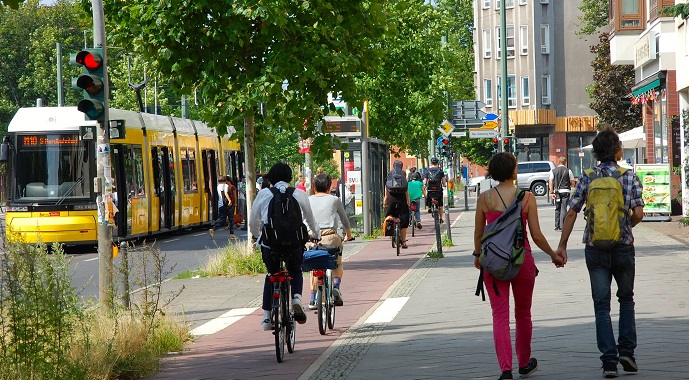A Nation on a Green Path
Germany, a pioneer in renewable energy, is now setting its sights on cleaning up its urban centers. The country is implementing a series of ambitious transportation policies aimed at reducing pollution and improving air quality in its cities.
Electric Avenue: Boosting EV Adoption
At the heart of Germany’s green transportation strategy is a concerted push for electric vehicles (EVs). The government is offering substantial incentives, including subsidies and tax breaks, to encourage citizens to make the switch from gasoline and diesel cars. Furthermore, the country is investing heavily in charging infrastructure, ensuring that EV owners have convenient access to charging stations across the nation.
Farewell to Fossil Fuels: Expanding Public Transport
To reduce reliance on private vehicles, Germany is also expanding and upgrading its public transportation network. Investments in trains, trams, and buses are being made to provide efficient and affordable alternatives to cars. Additionally, cities are implementing car-free zones and pedestrian-friendly areas to promote active transportation like walking and cycling.
Clean Cargo: Greening the Logistics Sector
The transportation of goods contributes significantly to air pollution. To address this issue, Germany is introducing stricter emissions standards for commercial vehicles and promoting the use of electric and hydrogen-powered trucks. The government is also supporting the development of sustainable logistics solutions, such as urban distribution centers and last-mile delivery services that rely on cargo bikes and electric vans.
A Holistic Approach to Urban Living
Germany’s green transportation policies are part of a broader effort to create sustainable and livable cities. Alongside improvements in public transport and air quality, the government is investing in green spaces, cycling lanes, and noise reduction measures. These initiatives aim to enhance the overall quality of life for urban residents.
Challenges and Opportunities
While Germany’s green transportation agenda is commendable, it also presents challenges. The transition to electric vehicles requires a robust charging infrastructure and the development of battery recycling technologies. Additionally, the cost of public transportation must remain affordable for all citizens. However, with careful planning and investment, Germany has the potential to become a global model for sustainable urban mobility.
By embracing electric vehicles, expanding public transport, and greening the logistics sector, Germany is taking significant strides towards a cleaner and healthier future for its cities.
CHECK OUT 3KCLUB.IN THE BEST GAMBLING WEBSITE IN INDIA!
